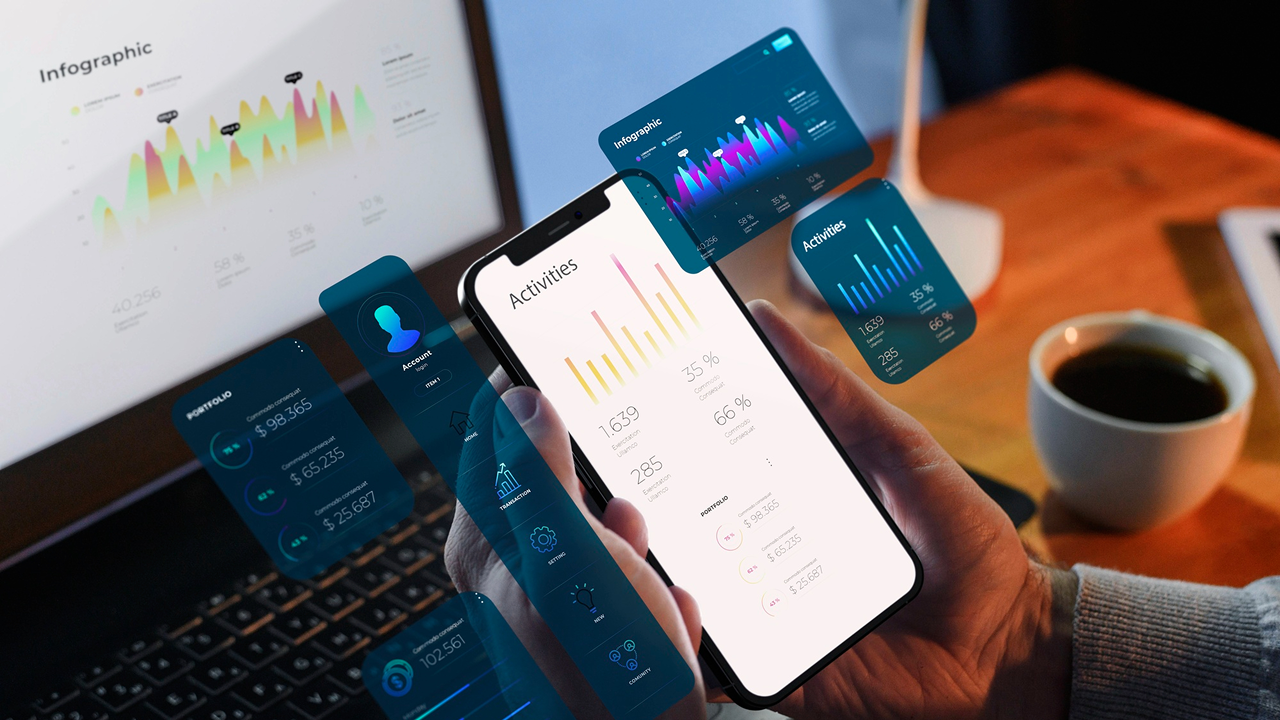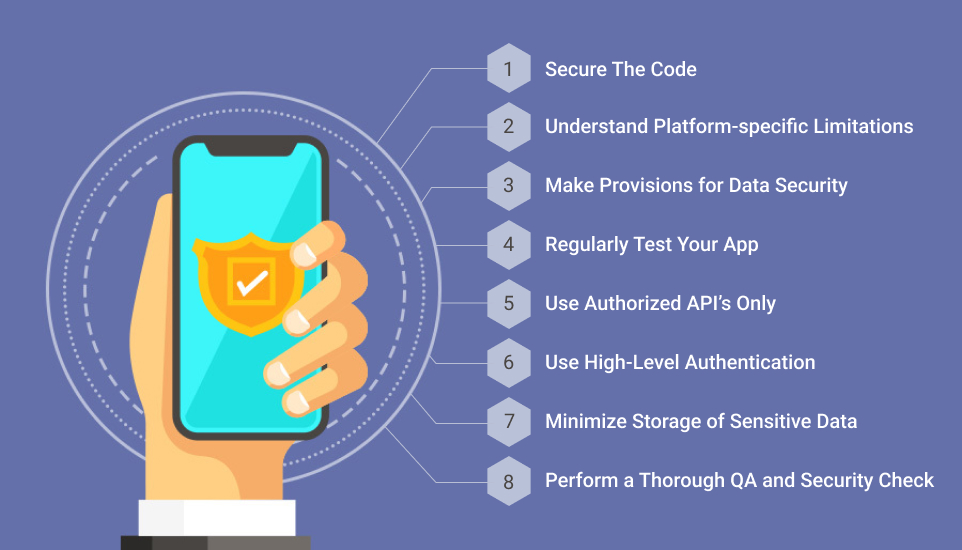
Mobile devices have become more familiar than computers and laptops. Over the course of the last year, mobile users have increased by over 10 percent and nearly 51 percent of the time spent by users is on mobile devices. Mobile applications are available in Google Play Store, Apple App Store, Windows Store, etc. Organizations and global enterprises have also comprised mobile application development in order to improve employee productivity while aligning themselves with a younger, more connected workforce. However, there is one crucial question that many mobile app developers continue to face
– Are Mobile Applications Secure ?
Mobile applications remain the prime target for malicious activity. Hence, companies should safeguard their mobile apps while having the huge benefits that these apps provide. Here we describe a mobile application development security checklist to refer to while developing your mobile apps. They also add a large amount of value to your company with respect to mobile application development. Each year, many companies invest millions of dollars into the mobile app development of new or updated apps

Best Mobile App Design Company
Mobile Application Development Security And Its Need
For mobile app developers , the most significant question – How do I protect the app against any malicious intent? Whenever users make banking transactions or online purchases or they leave a digital footprint behind, such as their: personal name, street address, phone number, banking information, etc. security of the app is very crucial. However, it also makes us sensitive to external threats, like hackers. So, when mobile application development security, steps are taken to secure the mobile applications from external threats.
1. Secure The Code
Mobile software protection must be prioritized from the start. Native mobile applications, on the other hand, are different from web applications, which store data and software on a server and use the client-side as a user interface. However, once you download a native app, the code remains on the phone, making it more convenient for anyone with malicious intent. Many bugs can be visible in an app’s source code, so companies don’t invest their security budgets there.
2. Understand Platform-specific Limitations
If you are building a mobile app development for multiple mobile operating systems, it is better to understand the security features as well as the limitations of the platform, and then code accordingly. You should consider different user case scenarios, password support, encryption support, and geo-location data support in order to properly control and distribute the app on your chosen platforms.
3. Make Provisions for Data Security
When a mobile application accesses confidential data, unstructured information frequently gets stored within the device storage. Mobile data encryption can be significantly used to secure the data, and it can be done mainly by using SQLite Database Encryption technique.
4. Regularly Test Your App
During the creation of an app, it is normally required to test the code. Since mobile app development is going with rapid speed, important points are not visible to reduce the development time. If the software is a hybrid, native, or web app, experts suggest checking for security in addition to accessibility and usability. You’ll be able to recognize bugs in the code and correct them before releasing your software.
5. Use Authorized API’s Only
Developers pretty frequently rely on using APIs as they make their job a lot easier. However, APIs can be responsive to external breaches as well. Therefore, it is suggested that APIs are authorized mainly for maximum security. APIs that aren’t approved and authorized or loosely coded can accidentally grant hacker chances.
6. Use High-Level Authentication
Authentication relates to the use of personal information and passwords. Interestingly, the main security breaches happen due to very weak authentication. To assure maximum protection of your mobile apps, it is strongly recommended to use strong authentication. When it comes to passwords, you can use the Dual-factor authentication technique to ensure mobile app security.
7. Minimize Storage of Sensitive Data
If possible, make preparations such that the private user data never gets saved within the device or in your servers. This is because unnecessarily managing user data continues to your risk levels. If you do have to store the user data and there is no way around it, use encrypted data containers or key chains, while using cookies for stored passwords.
8. Perform a Thorough QA and Security Check
As the last security tip for mobile app developers, never delay testing your application against randomly generated security scenarios before eventual deployment. If your budget permits, you can even hire a hacker who could identify security issues within an application.
Conclusion
When preparing mobile applications, define the UI and UX, and guarantee that the security aspects have been validated. Secure your app’s username, networks, and backend. If you are looking for a reliable mobile app development company; You can hire our expert Android app developers or iOS app developers.